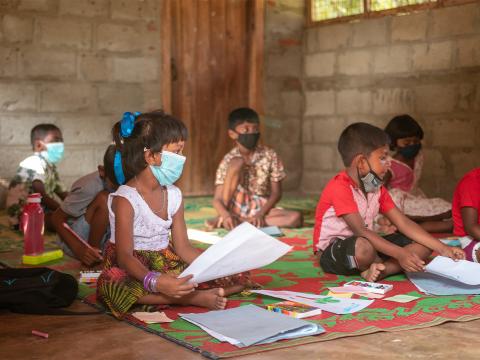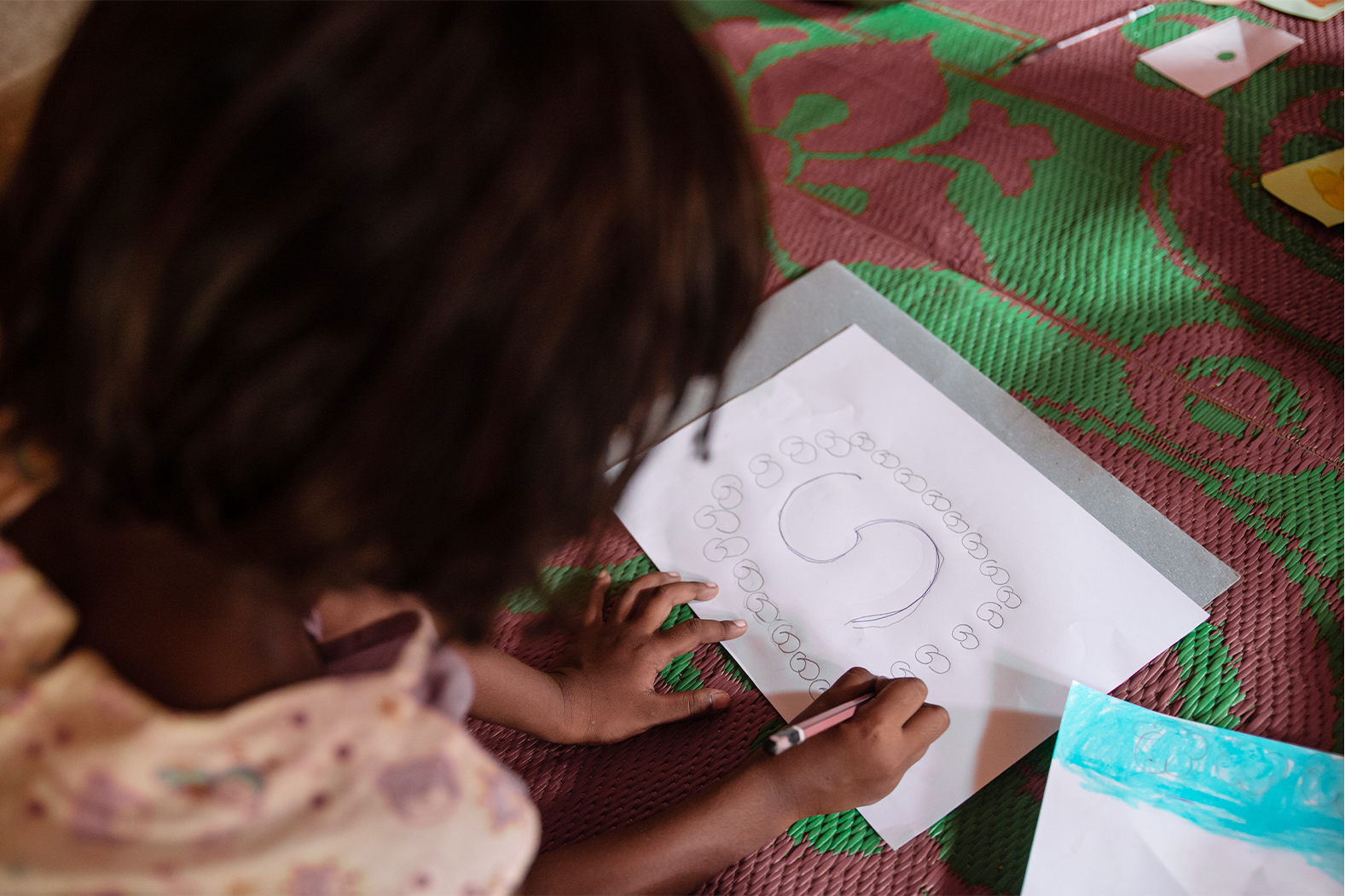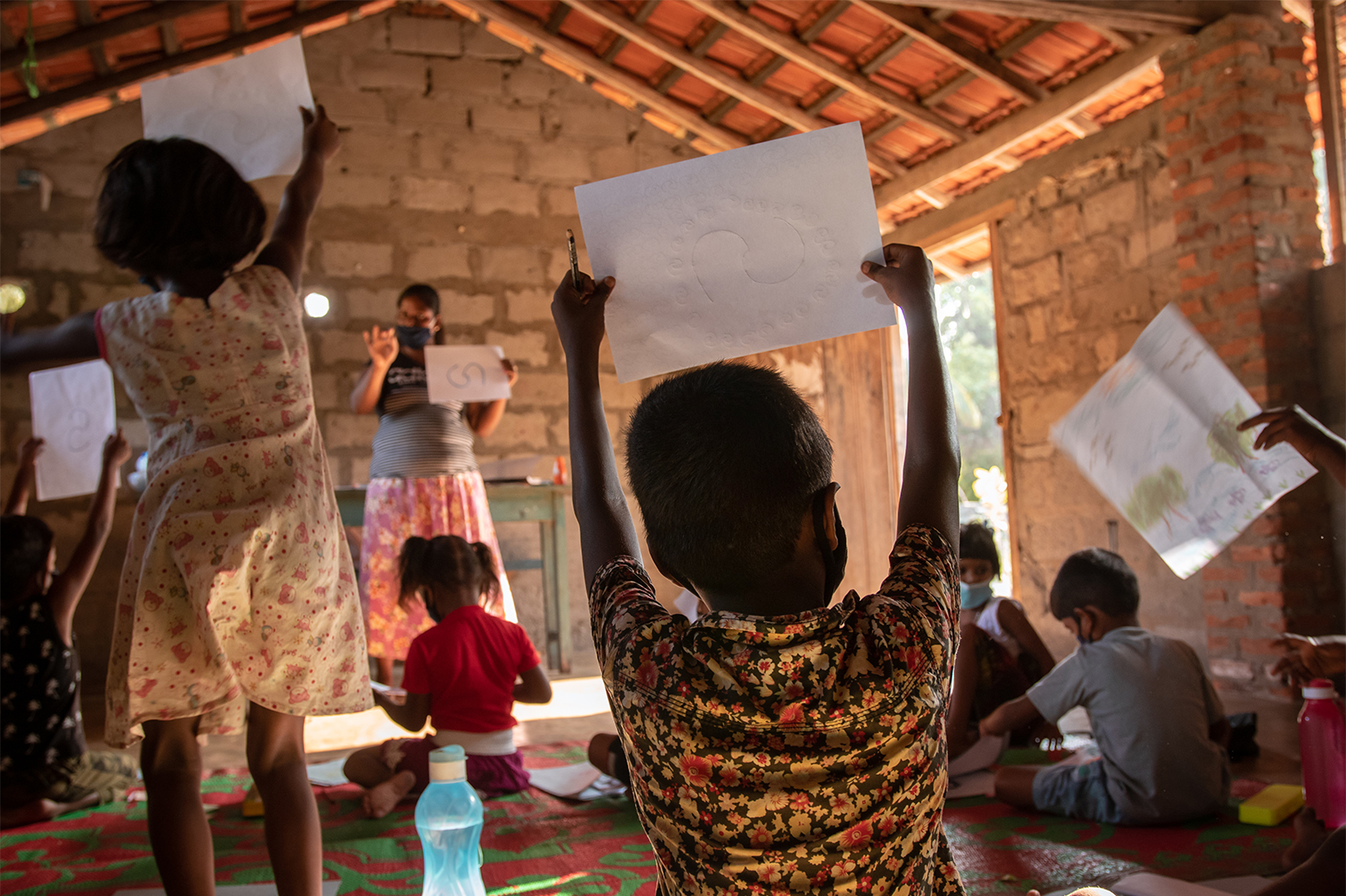Writing letters on Saturdays

Lasanthi spent her Saturdays with children and the alphabet. There were children between the ages 6 and 10 who needed to learn the alphabet. Lasanthi worked patiently one letter at a time until they were thorough with the letter.
"When we first started this literacy improvement programme in 2017, it was difficult," Lasanthi says, "There were children as old as 10 years who had trouble recognising letters."
"But since the programme, there has been a huge improvement," she says, "We will have only few students who need help when they are in grade five because most will be identified right from grade one and directed to one of these classes."
There was a reason why children in Kalpitiya couldn’t get through the Grade five Scholarship Exam. They had trouble recognising the letters in their alphabet. Most children couldn’t complete school because of this issue.
An Age Appropriate Literacy Assessment (AALA) and a school-based assessment for reading (for grade 3 students) by World Vision Lanka in 2017 showed that only 30% of the students had age-appropriate competency.
Immediately, World Vision brought this to the notice of the Kalpitiya Divisional Education Office and promoted the implementation of child-focused literacy development programmes in schools. The Divisional Education Office rolled out classroom-level literacy development plans for low performing students in the class.
Meanwhile, World Vision focused on building capacity among teachers and volunteers to support students in literacy improvement. By 2019, the literacy levels of children had already risen upto 53%.
"Today, the schools are thorough with the process. When they see a student lagging behind, they are able to identify the problem and if it related to literacy they enroll them in a class closest to them," she says. During the pandemic, the classes had to be stopped.
However, World Vision collaborated with the Zonal and Divisional Education Offices to ensure the children kept up with literacy and Essential Learning Competencies by providing grade-level study packs. In addition, WV established a distance learning unit at the Divisional Education Office with facilities to print study material for the children.

"Soon after the curfew was lifted, I planned how to arrange the class," says Lasanthi, "So now, I have them in smaller groups and have the literacy class in two sessions."
"My biggest joy is seeing the potential of each student as they progress," smiles Lasanthi, "I have seen children who return back to their regular classes in school after the support from these literacy classes."
